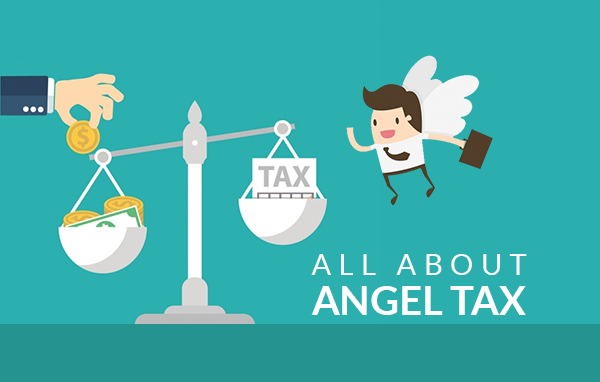All About Angel Tax
In a startup scenario, one of the major hurdles faced by the entrepreneurs are capitals issues, many startup models have longer breakeven periods, making their sustainability tougher when bootstrapped. This is why startups in today’s world take funding as the milestone of growth and scalability. But our Fiscal laws have very stringent rules for un-regularized capital flows, and they try to trap in all such transactions. The Income-tax Act 1956, under Income from Other Sources, traps all such investments and taxes it at a flat rate of 30.90%. One such tax is the Angel Tax.

Many budding startups depend heavily on external sources of funding such as angels and VCs, such provisions make an entrepreneur’s journey even more challenging. The Angel Tax since its induction in 2012 has made an investment in startups a challenging scenario.
Why should someone pay Tax on an investment?
To be clear you don’t actually pay any tax on your investment but on the difference between actual investment and fair value of such investment. For example:
If an investor decides to invest in a startup that is valued at 10,00,000 INR and invests 4,00,000 INR for 50% stake in the company. So that means he is acquiring 5,00,000 INR (50% of 10,00,000 INR) worth of share at 4,00,000 INR, thus gaining 1,00,000 INR in the investment, which is taxed at 30.90 % in the hands of the investor.
So is Angel Tax only applies to investors?
Um, not really! According to the charging section 56 of the Income-tax Act, any share premium received in excess of its fair market value is chargeable to tax. The amount is taxable in the hands of the company or the investor depending on the circumstances, this can be better explained with the help of an example:
Taking the figures from the above example, let’s assume the Investor paid 6,00,000 INR for the same 50% shares of the company which is valued at 10,00,000 INR
This means the company is receiving 6,00,000 INR for shares which are valued at 5,00,000 INR (50% of 10,00,000 INR), thus gaining 1,00,000 INR in the process, which is taxed at 30.90% in the hands of the company.
Are there any exemptions available?
The latest notification issued in the official gazette on 11th April 2018 clarifies the tax exemptions and eligibility as the following startups are eligible to apply for exemption from angel tax:
- A startup should be a private limited company.
- The aggregate amount of paid-up share capital and share premium of the startup does not exceed ten crore rupees.
- The startup has obtained a valuation report according to the provisions of the income tax act.
- The proposed investor, willing to subscribe to the share of the startup company either has:
- An average income of twenty-five lakhs or more in the preceding three financial years or
- A net worth of two crores or more as on the last date of the preceding financial year.
How can you apply for such an exemption?
If you are an eligible startup fulfilling the above conditions you can file an application in Form -2 to the Inter-Ministerial Board accompanied by required documents. Please keep in mind that the Board holds the right to approve or reject the application as it may deem fit.
